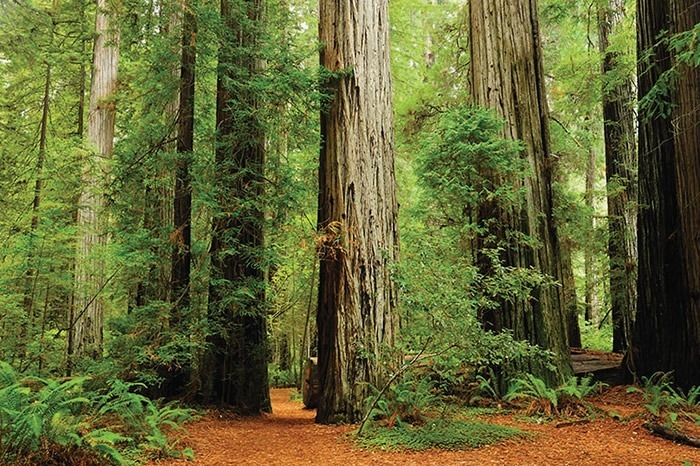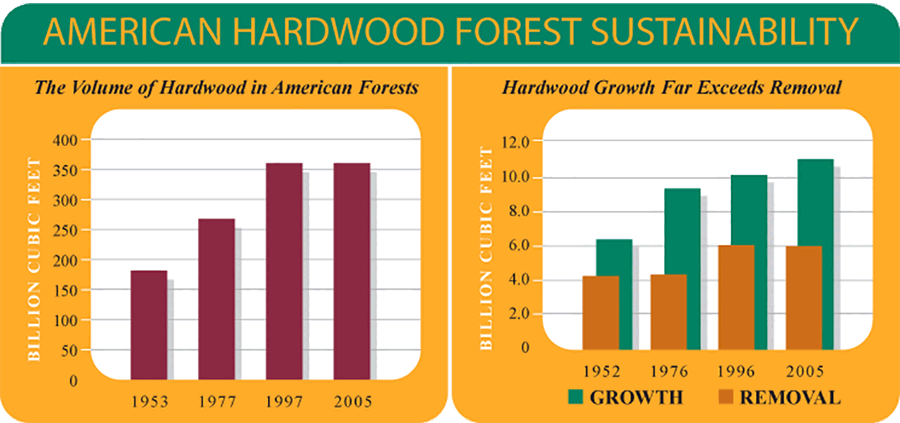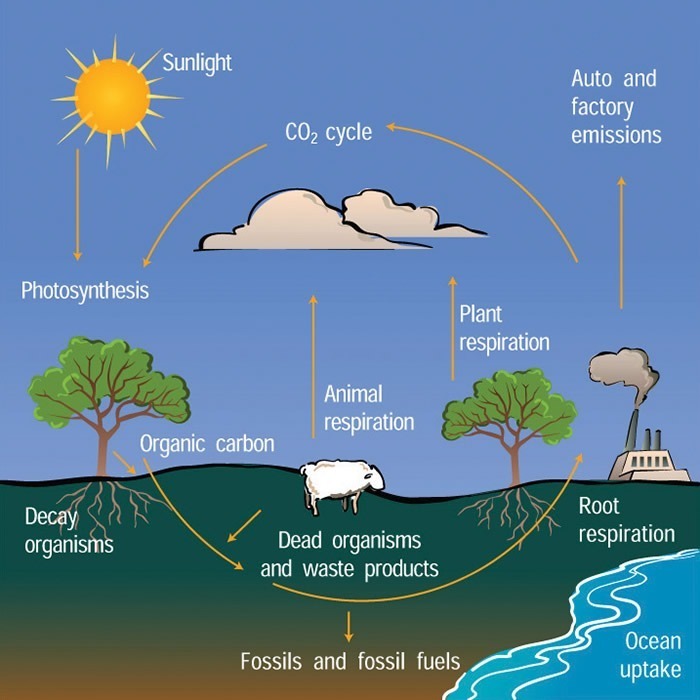American Hardwoods: The Natural, Eco-Friendly Choice for Your Home
Misconceptions about hardwood manufacturing make it difficult to decipher whether or not it is a responsible product and material choice for “greening” the home. If you’re concerned about the environment, but struggling with terms like carbon footprint, greenhouse gas emissions and carbon sequestration, you have come to the right place. The American Hardwood Information Center aims to set the record straight. The following outlines the significant role American Hardwoods play in the environment, what exactly these scientific terms mean and how incorporating more hardwoods into homes and businesses will benefit us all.

Naturally Abundant and Responsibly Harvested
Did you know that nearly twice as much hardwood grows each year as is harvested? It’s true. In fact, in the past 50 years, the volume of hardwood species found in American forests has nearly doubled.
Hardwood foresters follow best practices, including single-tree selection as a regionally preferred harvesting method, which mirrors natural forces and encourages forests to renew and regenerate themselves naturally and prolifically. More information on harvesting practices can be found here.

Environmentally Friendly and Sustainably Manufactured
Thanks to photosynthesis, healthy forests are net producers of oxygen and trees are actually carbon neutral. By itself, carbon dioxide (CO2) is not bad. In fact, CO2 plays an important role in the overall balance of life because it and other gases help to determine the temperature of the Earth. Growing trees take carbon dioxide from the atmosphere and separate the carbon and oxygen atoms. They then return the oxygen to the air, using just the right amount of carbon to grow trunks, branches and leaves. The unused carbon is stored or sequestered for the life of the tree and the products made from the hardwood. Therefore, conversion of American Hardwoods into products such as furniture, flooring, cabinetry, doors and mill work actually contributes to the long-term sequestration of carbon.

This process reduces greenhouse gases in the atmosphere. How much? An acre of trees can remove about 13 tons of dust and gases from the environment.
Within the sustainability discussion, one concern among scientists and researchers is that certain human activities are significantly increasing the amount of CO2 and other “greenhouse” gases that are released into the environment. The overabundance of these gases is trapping too much heat in the Earth’s atmosphere – heat that should otherwise escape into outer space. And as a result of this affect, the Earth’s temperature is rising, creating an undesirable “carbon footprint.”
This is a concern in general for global manufacturing as energy is required to produce nearly every product used today. Other building materials such as steel, aluminum, glass, concrete and brick, have a higher carbon footprint than American Hardwoods, as they require significantly more energy to produce, install and dispose of at the end of their natural lifecycle. In comparison, wood requires a very small amount of energy to become lumber. Advanced technology and responsible manufacturing processes assure the least wood waste and that all wood processing by-products have a use:
- Tree bark becomes mulch and soil conditioners.
- Sawdust is sold for animal bedding or fuels the boilers that operate dry kilns.
- Trimmings are chipped and processed into paper and other products.
- Small wood pieces are processed or finger-jointed into wood components.
And because American Hardwoods are just that, American, less energy is required for transport. Imported materials such as bamboo, teak and mahogany grown half-way around the world can’t say that. For more information, click here.

